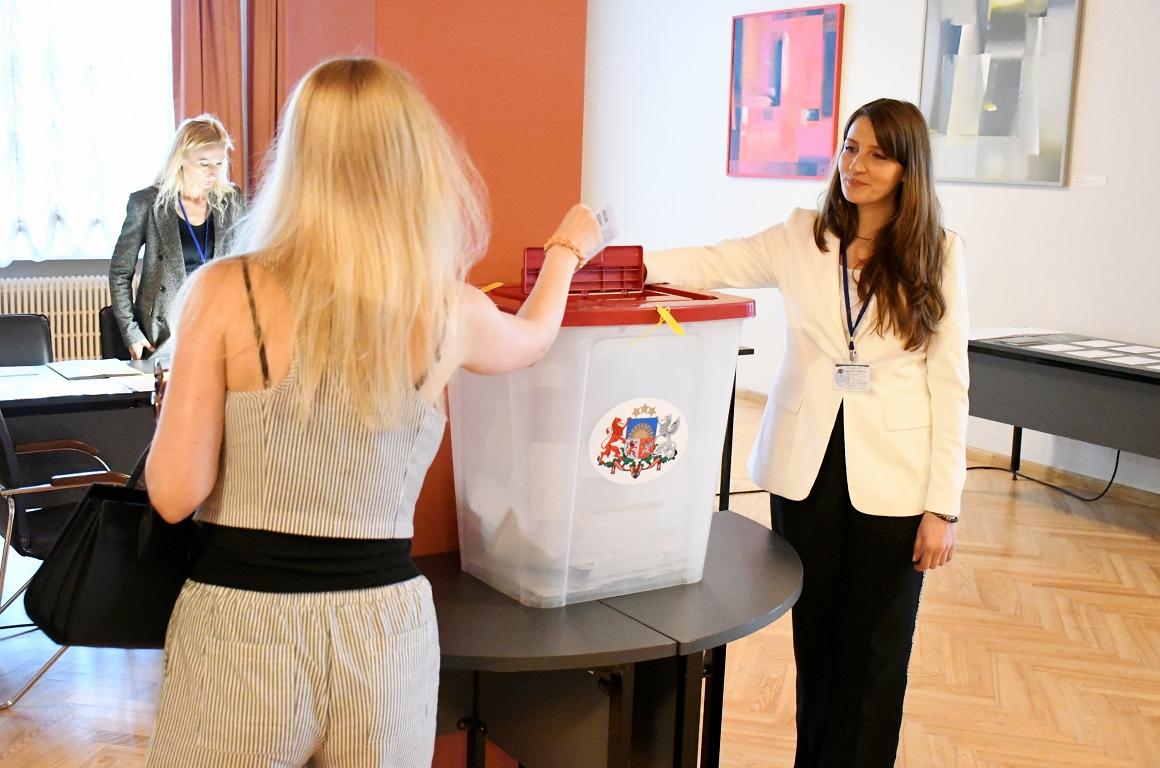Syria, Damascus: Hasna’s children disappeared – so she found them

Soldiers brought the five children to the orphanage merchant in central Damascus. The director only al-Ajubi received the children and asked no questions. It was in the spring of 2024 and she had been involved in similar situations many times.
In fact, she founded the orphanage in 2006 to give a home to orphans, she explains in a meeting room with marble floors and antique furniture.
– I wanted to give an arms to children who no longer had anyone, she says.
But after that The civil war began in Syria, her mission changed, without her being able to do anything about it. One day, regime forces appeared with children without identity documents or personal data.
– They said I had to hide the children. I had to, forced, forced. There was no alternative, says only al-Ayoubi.
And then the children continued to come. Girls and boys who were not orphans, who did not miss families – but who had been stolen from their homes.
When the Assad regime fell on December 8 last year, millions of people throughout Syria began an intensive search for missing family members. People who had been away for several years suddenly came home after the doors of the prison had been opened, spouses reunited with their loved ones, parents got their children back.
But a large number of people are still missing. Nearly 2,300 of them are children. They may be dead. They can be somewhere without knowing that they are sought after. Or they may have been adopted as infants and disappeared beyond Syria’s borders.

The children who have been found by their parents were often at one of four special orphanages in Damascus. Like the orphanage mercy.
Hasna Wahabani sits on the floor in a tent that has been donated to the village of al-Wahabani from the UN. She wears niqab, a shawl that covers everything except her eyes. Around her are four of her children. The oldest, eleven -year -old Ahmed, is away and helps a relative today. Nine -year -old Aeysha is constantly looking for body contact with her mother, holding her knee or leaning against her side.
« I never thought I would see them again, » says Hasna Wahabani, rushing in Aeysha’s hair.
In April 2024 appeared The Assad regime’s security forces up at the tent they lived in. They seized Hasna, her husband and all the five children. Why? They didn’t tell you.
– But I think it is because my husband had lived in Idlib for a few years. He had an old injury, so he did not participate in any battles, but I think the regime saw him as opposition, says Hasna Wahabani.
Idlib in northwestern Syria became the most important city in 2015, from which they coordinated their rebellion against the regime.

If her husband got any clearer causes of the arrest, you can’t know. Hasna has not met him since they were both arrested. Now he is dead.
– It was common to be arrested and imprisoned for no reason. When I entered the prison I was shocked, there were a lot of others there, says Hasna Wahabani.
The five children Got to be with his mother during the first twelve days. Then guards came and carried them away, without telling where they were going.
– They put me in isolation cell. They interrogated me daily but said nothing about the children. It took two months before I heard something about them and then I was told that they had been placed in an orphanage.
Hasna Wahabani says that many other women in prison had met the same fate. When she came out of the isolation, she heard stories about mothers who have not seen her children in months, or in some cases years.
– Girls who had been there for seven, eight, nine years told us that there were special orphanages. It was also talked about that young children were adopted abroad.

After two months, Hasna’s children came to visit the prison.
The meeting took place in an anonymous room in connection with the prison and lasted for 50 minutes. The children were sad, especially the Minstingen Hammoud, who was not even two years old when he was divorced from his parents.
It was the orphanage The mercy that drove meetings between what was called the « security children » and their parents. Most children in the same situation were never allowed to meet their parents while in prison. Or maybe never again. Since the documentation was so bad, it is difficult to know afterwards where everyone ended up.
– On the day of liberation, our prison door was opened at three in the morning. At first we thought they would move somewhere, but then we realized that we were free, says Hasna Wahabani and refers to December 8, when the regime fell.
Like thousands of others, she left the prison happy, but confused and scared. She did not know where to start looking for her children, did not know which of all hundreds of orphanages they could be on.
Hasna joined his cellmates, three other mothers who lost their daughters and sons and who had a better look at where they would look.

– We were many who went from place to place to find our children. But I was lucky, already on the first day we came to the orphanage mercy and there were all my children.
The orphanage has filmed The reunion between Hammoud and his aunt, who also made a company in the search. The little boy throws himself in her arms and does not want to let go. The aunt kisses him on his cheeks, corrects his little jacket and cries.
« It’s hard to describe the feeling when I got them in my arms again, » says Hasna Wahabani, and attracts eight -year -old Abdullah who smiles and puts her head in her lap.
Abdullah says he longed for mother while at the orphanage. He had to go to school and play, but the staff was hard and especially a man beat the children all the time.
« With a stick, like this, » says six -year -old Kassim and shows on his outstretched hand.
Three days after Hasna and the children were reunited, she saw a picture of her husband in a Facebook post. Then she found him too. Death. In a cold room belonging to a hospital. How he died she does not know.

Hasna Wahabani is happy to be with her children again. But the future looks anything but light in the tent in the middle of nowhere, in an empty landscape that consists mostly of sand and stone. Without work or the opportunity to support the children, she may rely on support from her relatives, who themselves hardly have anything.
– I don’t know … The future is lost here, frankly.
According to a review by US Npr Hundreds of children are still missing in orphanages by the Assad regime. When people in retrospect try to understand where they have taken the road, it has also been found that several of the orphanages did not document anything at all. People could basically go in, claim that a couple of children were theirs, and go away with them. One manager tells NPR that she personally approved several adoptions of newborn babies that the security service claimed was « abandoned ».
Only al-Ayoubi tells DN that the orphanage mercy did everything it could to reunite children and parents. In some cases, soldiers came to relocate « security children » and then they secretly stuck to the children the home’s telephone number so that they could announce where they went. In some cases they called.
When the regime fell, there were 24 children who were complained in the orphanage.

– They have all had to come home to their parents again. It feels like we can finally breathe again, says only al-Ayoubi.
How do you know it was really the children’s parents?
– You notice that. The children usually recognized them.







:format(webp)/s3/static.nrc.nl/images/gn4/stripped/data133280221-bb4cba.jpg)
